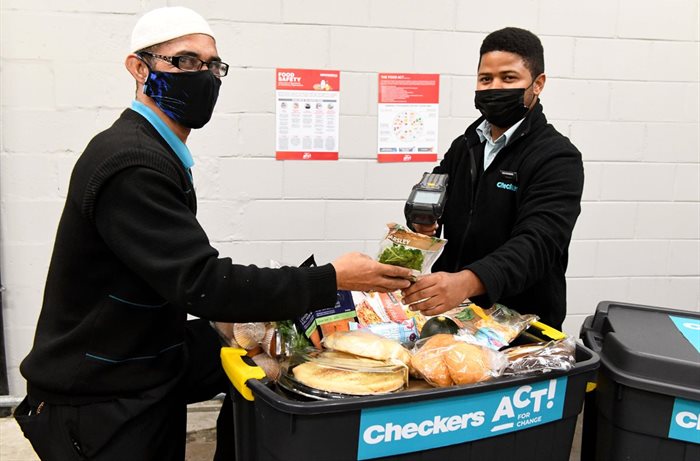
Top stories


Marketing & MediaCammy Msimango on finding her footing in South Africa’s fast-moving digital newsroom
Esther Tomorrow, MDNTV 22 hours




More news




Food waste is not just an affront to the hungry in a country where 2.5 million people experience hunger weekly. It also has significant environmental and economic implications. Food is wasted across the supply chain, from farm to fork, and is a complex issue. Therefore, and Africa’s largest food retailer has adopted systematic and comprehensive approach to help address it.
The best way to reduce food waste is to avoid it to begin with, notes Sanjeev Raghubir, the Shoprite Group’s sustainability manager. “Our biggest efforts go into preventing food waste and losses before they occur,” he explains.
The group does this by reviewing its ordering, replenishment and ranging processes, using data analytics to identify food waste hotspots. For example, by optimising the product range in its delis, the group reduced food waste by 11% in that department.
The group also uses artificial intelligence and machine learning to predict sales at its stores. Replenishment orders are placed automatically, to ensure that stock is always available for customers while simultaneously reducing food waste.
Various parameters are considered by the AI model. “For example, a store close to the finish line of an annual sporting event will automatically be replenished with additional convenience meals for that single day of the year,” Raghubir says.
Salvaging and rescuing food is a popular process seeing increasing use abroad, and it's another important piece in preventing food from being wasted. For example, blemished bananas can be used in a banana-bread recipe.
Although the group's procedures and practices go a long way towards reducing surplus food, it does not eliminate it altogether. Surplus food, still fit for human consumption, remains and every day the group donates more than 120,000 meals to over 450 charities to fight hunger and address food security.
In the past year, the company donated surplus food valued at R138m. It also facilitates the donation of surplus fruit and vegetables directly from farms to charities.
Not all surplus food is fit for human consumption, but the group has a plan for this, too. Every week, Shoprite sends around 44 tons of food waste, mainly dried goods like pasta, cereals, and flour, to be converted to animal feed.
Regenerative and organic farmer Farmer Angus sources over 4 tons of fruit and vegetables (not fit for human consumption) from the Basson Distribution Centre in Cape Town each week. He feeds this to his pigs and supplies an artisanal charcuterie range back to Checkers, thereby creating another circular flow of resources and avoiding waste.
Even the 904,479 litres of used cooking oil recovered from Shoprite and Checkers delis last year, is not wasted. This oil is used for industrial applications, including the conversion to biodiesel.
Organic waste from stores and distribution centres is increasingly managed through on-site composters and off-site biodigesters. In its last financial year, the group sent 236 tons of food waste to composting.
These measures are having a marked impact on food waste and the environment. The group diverted 3,305 tons of food waste from landfills in the past year and saved 8,391 tCO2e.
The Shoprite Group says it's closely aligned with the United Nations' Sustainable Development Goals, including the target to halve food waste at retail and consumer levels and reduce food losses along the food chain by 2030.